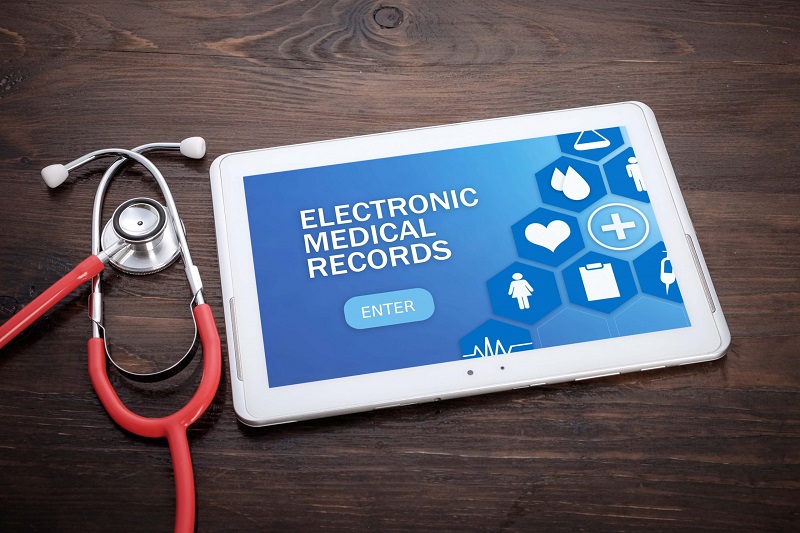
The healthcare sector has witnessed a transformative shift from traditional paper records to digital record-keeping systems in the digital age. This evolution has streamlined administrative processes and significantly enhanced patient care and legal safeguards. Electronic Health Records (EHRs) have become the backbone of modern healthcare, offering a comprehensive, accessible, and secure way to manage patient information. As we delve deeper into this digital transformation, we uncover its profound impact on improving patient outcomes, increasing healthcare efficiency, and providing a robust framework for legal protection against medical malpractice.
The Advantages of Digital Record Keeping in Healthcare
Digital record-keeping in healthcare, primarily through the use of EHRs, has revolutionized the way patient information is stored, accessed, and shared among healthcare professionals. This section explores the multifaceted benefits of this technological advancement.
- Enhanced Patient Safety: By ensuring that accurate and up-to-date patient information is readily available to healthcare providers, EHRs significantly reduce the risk of medical errors. They facilitate better medication management, allergy tracking, and coordination of care, directly contributing to improved patient safety.
- Improved Care Coordination: Digital records allow for seamless information sharing among different healthcare providers, ensuring that a patient’s care team is fully informed about their medical history, treatment plans, and test results. This integration fosters a more collaborative approach to patient care, reducing redundancies and ensuring that treatments are both effective and timely.
- Increased Efficiency and Accessibility: EHRs streamline the administrative aspects of healthcare, making it easier for providers to update patient records, order tests, and prescribe medications. Patients also benefit from easier access to their own health information, empowering them to take an active role in their healthcare decisions.
- Data Analytics and Health Outcomes: The aggregation of patient data in digital form opens up new avenues for health analytics, which can lead to an improved understanding of disease patterns, treatment outcomes, and patient care practices. This data-driven approach helps in formulating evidence-based strategies to enhance healthcare delivery and patient outcomes.
Digital Record Keeping and Legal Safeguards
The transition to digital record-keeping has also introduced significant legal safeguards that help protect both patients and healthcare providers.
- Accurate and Comprehensive Documentation: Digital records provide a detailed and chronological account of a patient’s healthcare journey, which is crucial in the event of a legal dispute. This comprehensive documentation can serve as evidence to support the quality and appropriateness of care provided, offering protection against unfounded claims of medical malpractice.
- Enhanced Privacy and Security: EHR systems are equipped with advanced security measures to protect patient information from unauthorized access and cyber threats. Compliance with regulations such as the Health Insurance Portability and Accountability Act (HIPAA) ensures that patient data is handled with the utmost confidentiality, further safeguarding against legal risks.
- Standardization and Compliance: Digital record-keeping systems help healthcare providers adhere to established treatment guidelines and regulatory requirements. This standardization plays a critical role in mitigating legal exposure by demonstrating that care was provided in accordance with best practices and industry standards.
Understanding Medical Malpractice in the Digital Era
As healthcare continues to evolve with technological advancements, it’s imperative for patients and healthcare providers to understand the legal implications of medical malpractice within this new landscape. Medical malpractice occurs when a healthcare provider deviates from the standard of care, resulting in harm to a patient. In the context of digital record-keeping, ensuring patient information’s accuracy, confidentiality, and security is paramount in preventing malpractice.
To navigate the complexities of medical malpractice, it’s crucial for both patients and providers to be well-informed about their rights and responsibilities. Seeking comprehensive insights into medical malpractice can empower individuals to take proactive steps in ensuring quality care and legal protection. The shift towards digital record-keeping in healthcare has significantly improved patient care, efficiency, and legal safeguards. By harnessing the power of technology, the healthcare industry is better equipped to deliver high-quality care, protect patient information, and reduce the risk of medical malpractice. As we move forward, it’s essential to continue exploring the potential of digital innovations in enhancing the healthcare landscape, ensuring that both patients and providers are supported by a safe, efficient, and legally sound system.